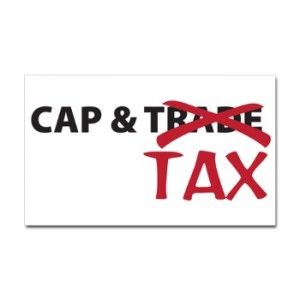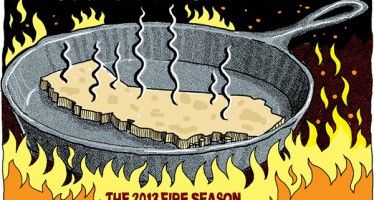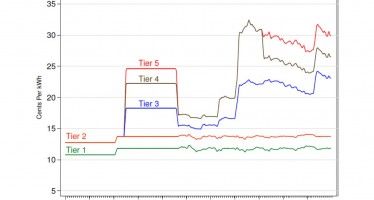Cap and trade could tax cities for out-of-state pollution
By Wayne Lusvardi
Utility companies reportedly bought most of the $280 million in total pollution permits, about $162 million worth, at last week’s statewide cap-and-trade auction. It was the third auction held since last November.
Several city-run municipal power utilities in California still import a substantial percentage of their power from out-of-state providers to meet stringent California air quality standards. So electricity customers in some California cities could have to pay pollution taxes for pollution that doesn’t even occur in California. Cap and trade might be called a “non-pollution tax” for the cities of: Los Angeles, Anaheim, Riverside, Pasadena, Azusa and Vernon. The total population in these six cities is more than 4.6 million.
A cap-and-trade system is considered a market mechanism where industries and public utilities that keep their emission levels below a designated level, called a “cap,” may “trade” surplus permits to over-polluters, who can use the permits to offset excess emissions. California’s program has two phases: power plants and large utilities in 2013 and distributors of oil, natural gas and transportation fuels in 2015.
Six tax-zapped cities
Six Southern California cities that rely on a large portion of their power from the Intermountain Coal Power Plant in Utah and the Navajo Coal Power Generating Station in Arizona bought pollution permits at last week’s cap-and-trade auction. The six cities and the percentage of coal they buy from out-of-state providers are:
California Cities That Import Substantial Portion of Power
| City | Population | Percent Imported “Dirty” Coal Power | Percent “Clean”“Dirty”Hydropower from Hoover Dam |
| Azusa Light and Water | 46,361 | 59% | 6% |
| Pasadena Water & Power | 137,132 | 56% | 4% |
| Anaheim Public Utilities | 336,265 | 51% | 2% |
| Riverside Public Utilities | 303,871 | 44% | 1% |
| Los Angeles Dept. of Water and Power | 3,792,621 | 17% | 0% |
| City of Vernon Municipal Water & Power | 112 | 7% | 2% |
| Total population: | 4,616,362 |
The above six cities also buy large-scale hydropower from Hoover Dam through the Southern California Power Authority. But under the AB 32, the California Global Warming Solutions Act of 2006 and its Cap and Trade law, clean hydropower is also considered a “dirty” source of energy. Call this a “tax on non-polluting clean power.”
Non-pollution taxes for a budget non-deficit
And on top of that, Gov. Jerry Brown has announced he wants to siphon $500 million of the cap-and-trade pollution taxes collected this year to plug the so-called state budget deficit. Brown is contriving to use cap-and-trade tax revenues as a loan to the State General Fund.
But California is currently running a $851 million budget surplus due to greater tax revenues from the passage of Proposition 30 and an emerging economic recovery.
So we might call cap-and-trade taxes in these six cities “non-pollution taxes for a budget non-deficit.”
Anti-pollution taxes for un-green activities
Said Tim O’Connor, spokesperson for the Environmental Defense Fund, “Cap and trade is working.” He added that the prices for carbon are reasonable and emissions are declining.
But are carbon pollution taxes on cities that export their pollution out of the jurisdictional boundary of California “reasonable”?
Environmentalists are outraged that Brown has decided to divert cap-and-trade tax monies to the state General Fund instead of to pollution-reduction projects, as was required by AB 32.
Tax farming scheme
Also, in 2012 Brown signed into law Senate Bill 535, which guaranteed cap-and-trade funds would not be diverted for unrelated purposes, but would go to pollution abatement, in particular in low-income communities.
The courts will determine if Brown can get away with borrowing from the cap-and-trade program. But if his borrowing is implemented, will customers in the above-listed six cities be eligible for rebates on their electric bills? The many irrational contradictions and potential illegality of California’s cap-and-trade program are why some commentators have called it nothing but a “tax farming” scheme.
Related Articles
Water reform re-Hatched in U.S. Senate
April 26, 2012 By Wayne Lusvardi On Wednesday April 25, Sen. Orrin Hatch, R-Utah, introduced an omnibus energy and federal
Tiered pricing ends up subsidizing solar panels for the rich
In a new development for energy conservation, it turns out charging more for electricity, the more juice is used, could





